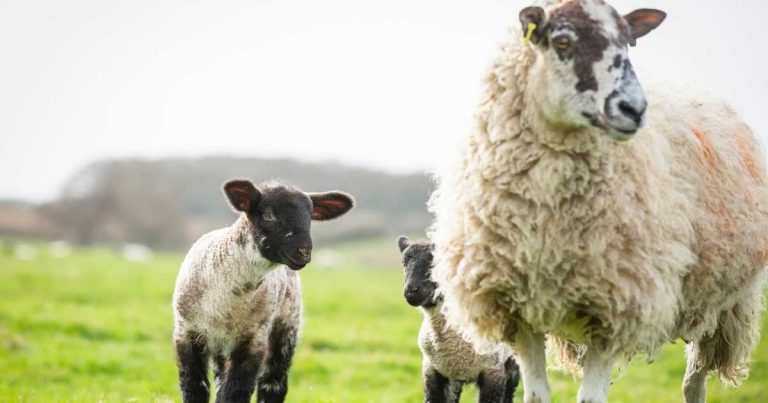22 May 2025
An SRUC researcher believes the Sustain Sheep programme will provide critical recommendations for future breeding programmes.

Image: © ellenamani / Adobe Stock
Scientists have claimed an international project will help to guide future sheep breeding policies that reduce their environmental impact without compromising other issues.
The Sustain Sheep project, which has now completed its first year and will continue until 2027, seeks to use selective breeding as a cost-effective method of reducing methane emissions.
The project brings together Scotland’s Rural College (SRUC), the UK’s Texel Sheep Society and institutions in key sheep breeding nations including Ireland, New Zealand, France, Norway and Uruguay.
Researchers say the project builds on studies from New Zealand, suggesting that selective breeding of sheep with a naturally low carbon footprint could reduce methane emissions by 1% to 2% per year without compromising genetic improvement in other traits.
Sheep are said to account for around 6.4% of livestock methane emissions – approximately 7 million tonnes produced by an estimated global population of 1.2 billion.
The project analyses methane concentration in air samples collected from portable accumulation chambers (PACs), which can predict an individual animal’s emissions and indicate which genetics – as well as feed types and systems – generate the highest emission levels.
The Texel Sheep Society’s John Yates said: “Methane measurement using portable accumulation chambers is still in its early stages, but if scalable and affordable, it could play a vital role in breeding programmes to support the Government’s net-zero target.”
Around 500 lambs (measured across two years) from Texel sheep flocks and 450 lambs (across four years) from SRUC’s Hill and Mountain Research Centre will be among those taking part in the research.
SRUC’s Nicola Lambe said: “A crucial aspect of this project is understanding what impacts there might be of reducing greenhouse gas emissions (GHG) on other animal characteristics such as growth, feed intake and efficiency, and quantifying the effects of these.
“This will enable recommendations for breeding programmes to be determined in tandem with the economic implications of selecting for low-methane sheep.”
Dr Lambe added: “The robust science from the project will provide a mechanism for national and global comparisons to underpin Governmental GHG reduction targets for the successful implementation of science into policy.”
More information on the project, which received almost £3 million in funding from Defra’s Farming Innovation Programme in 2023, can be found online.